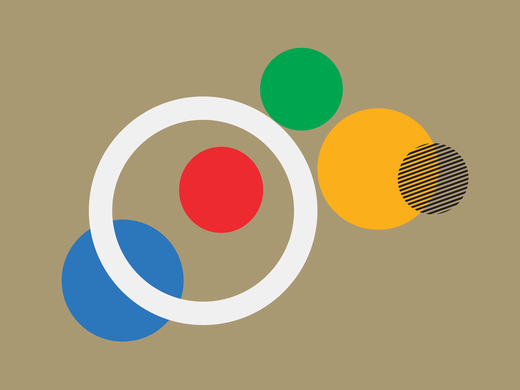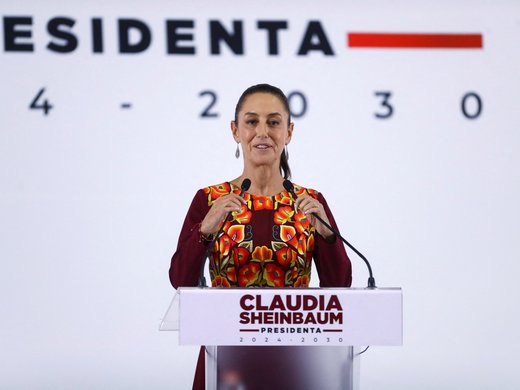Every December 1, Costa Ricans remember the moment when the founder of the modern republic, José Figueres Ferrer, took a sledgehammer to the walls of the army’s headquarters at the Bellavista Fortress in San José and said it would henceforth be the home of the national museum.
The act officially abolished the army, just seven months after Figueres Ferrer emerged victorious in the bloodiest event in Costa Rica’s twentieth-century history: the 1948 civil war that was sparked when the ruling party refused to hand over power after losing an election.
Costa Rica has been a model of stability in a volatile neighbourhood ever since, at least in part because the savings on military spending have been directed toward improving the health and education of its citizens.
Figueres Ferrer, who served three terms as the country’s social democratic president, told The Los Angeles Times in 1986 that he considered Costa Rica to be “an exemplary little country. In the next century, maybe everyone will be like us.”
Recent history has not been kind to such optimism, and Costa Rican society is convulsed by discussions over whether it can continue to be “like us.”
The Ticos, as Costa Ricans proudly call themselves, remain a contented lot, officially the twelfth happiest country on the planet in the World Population Review’s rankings, ahead of the United States, the United Kingdom and Canada. The joke is that a line of scarlet macaws flying in formation is the “Tico air force,” out on manoeuvres.
However, this previously tranquil part of the tropics is being assailed by external pressures that mean the great powers are taking an almost unprecedented interest in the region, and the reinstatement of Costa Rica’s army is no longer unthinkable.
Crime and corruption have risen as Costa Rica has become the first transshipment point for cocaine heading from Latin America to the United States and Europe. Traffickers who used to pay cash now pay in cocaine, creating a domestic market that has seen gangs emerge to fight for territory. In 2023, the homicide rate hit
17.3 per 100,000 people, which is double the rate from a decade earlier. Narco money has found its way into national politics before, and the concern is that its tentacles might now corrupt the judiciary, Congress, law enforcement and political parties.
A second external pressure is the flood of irregular migrants who have travelled through the Darien Gap in Panama and are heading north to the US border. Costa Rica has become a transit hub for the estimated 500,000 people who attempted to make that journey last year, swamping the resources of a small country of just 5.2 million people.
The third extrinsic problem Costa Rica faces is the rising geopolitical tensions created by its authoritarian northern neighbour, Nicaragua, which has bound itself ever closer to its patron, Russia.
Costa Rica managed to go its own way during the Cold War, even as a war raged in Nicaragua between the Sandinista government of Daniel Ortega and the US-backed Contra rebels in the mid-1980s. The United States put heavy pressure on the government in San José to allow itself to be used as a base for the Contras (and it was later revealed that a secret runway was built just south of the Nicaraguan border to supply the rebels). But the Costa Ricans remained officially neutral, and President Óscar Arias Sánchez won the Nobel Peace Prize in 1987 for his plan to end conflict in the region.
Costa Rica has a joint patrol agreement with the United States, allowing ships and crews to arrive at the country’s ports for refuelling. But the constitution is clear that no foreign troops are allowed on Costa Rican territory.
Nicaragua has no such qualms and the Ortega government, which has become increasingly repressive, passed legislation in 2022 authorizing the presence of Russian troops, warships and planes in the country. Allegations have emerged that Russian intelligence is using Nicaragua as a base to spy on the United States and its allies.
The history of Costa Rica and Nicaragua is checkered, dating back to gaining their independence from Spain in 1821. Three years later, Costa Rica annexed the Nicaraguan province of Nicoya, which is now the province of Guanacaste, home to many of Costa Rica’s top beach resorts.
Nicaragua has become increasingly isolated and erratic, as it has subdued internal opposition calling for more freedom and respect for human rights. In 2018, violent clashes with protestors resulted in hundreds of deaths.
Earlier this year, Ortega reflected on that history: “Did they steal Guanacaste? That is true, they stole Guanacaste. Do they want to take the San Juan River [which marks the border between the two countries]? That is also true,” he said.
Most observers do not believe that Ortega has serious territorial ambitions in Costa Rica, though Nicaraguan troops did enter its neighbour in 2010 to raise a flag on the Isla Portillos along the San Juan River, after blaming Google Maps for a change in the delineation of the border. (The International Court of Justice ruled in Costa Rica’s favour and Nicaragua withdrew its troops.)
But Nicaragua has become increasingly isolated and erratic, as it has subdued internal opposition calling for more freedom and respect for human rights. In 2018, violent clashes with protestors resulted in hundreds of deaths. Ortega has since cracked down on civil society, closing non-governmental organizations, universities and media operations, as well as attacking the Catholic Church. Earlier this year, the Nicaraguan president deported hundreds of political prisoners, some of whom had endured beatings and torture. Opposition leaders in exile in Costa Rica have been subjected to assassination attempts.
In 2022, the Biden administration designated Nicaragua as a country of particular concern, as the Ortega regime aligned closer with Moscow, which has supplied its Central American proxy with T-72 tanks and
Tu-160 bombers. Russian foreign minister Sergey Lavrov visited Managua on his tour of other authoritarian states in the region, Cuba and Venezuela.
Nicaragua has reciprocated by publicly declaring itself to be Russia’s “regional platform.”
The presence of a heavily armed, potentially hostile neighbour to the north has helped push Costa Rica firmly into the camp of the United States, which keeps a 500-member joint task force at the Soto Cano base in Honduras.
There are plenty of economic imperatives for a US-Costa Rican alliance, in any case. The United States is Costa Rica’s largest trading partner, as well as its largest source of tourism and foreign direct investment.
When President Rodrigo Chaves Robles met President Joe Biden in the White House last year, it was ostensibly to bolster Costa Rica’s role in the semiconductor supply chain under the CHIPS Act and to reinforce efforts to fight narcotics trafficking.
But the quid pro quo for Biden was a commitment from Chaves to exclude the Chinese telecom giant Huawei from Costa Rica’s 5G tender process. The request to stick with “trusted partners” was likely welcomed by the populist president in any case, coming just a year after a 2022 ransomware attack hit 30 government institutions, including the Ministry of Finance.
Costa Rica’s amiability is good news for the Americans, who have seen 21 of 31 countries in the Southern Command area — everything south of Mexico — sign up for China’s Belt and Road Initiative.
With the exception of the US$100 million national stadium, built by the Chinese as a thank you for transferring diplomatic allegiance from Taiwan, Chinese investment in Costa Rica has been minimal. “The Belt and Road is not really happening here,” said one US official. “Costa Rica has been pretty good at keeping the shackles of the PRC off.”
Biden’s line has been that the United States prefers to be a “partner of choice” and that allies are free to engage with China. The incoming Trump administration is unlikely to be as magnanimous; its doctrine is that there are no friends and no enemies in foreign affairs, and that permanent destabilization works to America’s advantage.
Costa Rica’s standing as a stable partner with democratic values and an open economy works in its favour. Yet it could still find itself subject to tariffs that might cripple its emerging semiconductor and medical device industries.
Further, Trump is unlikely to look fondly on its free-rider status when it comes to security. The Economist recently released its analysis of which countries would be most exposed to a Trump presidency. Costa Rica was ranked second-most exposed, behind only Mexico, thanks largely to its 100 percent reliance on the United States for security.
The United States estimates that in the 12 months to May of this year, nearly 1,500 flights landed in Managua, carrying almost 200,000 would-be migrants to the United States.
Eddy Acevedo, chief of staff and senior adviser to the president of the Wilson Center in Washington, DC, thinks that Trump will take a hard line with Nicaragua’s Ortega regime, given his focus on the border: “Migration will be a higher priority for him, and his administration will look at the root causes of the migration happening in Latin America,” he said in an interview with the author, referring to the dictatorship in Venezuela and the Nicaraguan government’s role in international trafficking.
According to Acevedo, Ortega has been making money, not only by charging migrants a transit fee at his southern border, but by welcoming full charter flights from Haiti, Cuba, Senegal, India and some Asian countries. The United States estimates that in the 12 months to May of this year, nearly 1,500 flights landed in Managua, carrying almost 200,000 would-be migrants to the United States.
Acevedo said the Trump administration should look at kicking Ortega out of the Central America-Dominican Republic Free Trade Agreement, an idea that might appeal to the incoming US president, since it is the only country in the region with which the United States has a trade deficit.
Acevedo said Biden’s administration has already given itself the legal authority to block Nicaraguan exports to the United States and has also looked at allocating its valuable sugar quota to other countries in retaliation. However, any measures that make Ortega even more capricious will be concerning for Costa Ricans.
Mauricio Ortiz, a former Costa Rican ambassador to Canada, claims that pride in being a peace-loving country with no army is in the DNA of all Costa Ricans, who would not support the army’s return. “It is a weakness, but at the same time, it is a strength,” he said. “We’ve never had a coup d’état since we abolished the army in 1948. It’s part of our stability.”
Yet he also admitted that being a neighbour of Nicaragua makes not having an army a very sensitive subject: “Ultimately, we believe in the international rule of law to defend our territory in case of a military threat from any country.”
In an age when the international rule of law has never been under greater threat, that notion may prove to be as quaint as a country with no army.
![Costa Rica final[70] copy](https://www.cigionline.org/static/images/Costa_Rica_final70_copy.width-1760.png)


